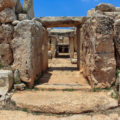For most, the word pilgrim has distinctive religious and touristic overtones. It is commonly used to refer to a person traveling to a place of spiritual significance –usually making a considerable physical effort.
Nowadays, even though still a religious practice for most people, a pilgrimage can also be a recreational, relaxing, laid-back activity. But pilgrimaging was, for a long time, a rather risky business. The roads were not precisely safe, going through unknown (and oftentimes openly hostile) lands. Sea crossings were not any less dangerous or uncertain. In fact, when medieval pilgrims walked the Way of St. James (either starting in Rome or Jerusalem) they shared their inheritance among their children beforehand –just in case they did not make it back.
All in all, pilgrim is a word with (mostly) positive connotations. A pilgrim, we think, is a courageous person in a quest for meaning, not attached to material goods, willing to take risks if need be. Indeed, once upon a time pilgrims were admired and met with veneration and hospitality everywhere they went. Powerful local authorities used to build houses and hospitals for them, and courts would always fail in their favor when defending them from thieves.
But if one lived in Ancient Rome as a peregrinus, things were quite different.
When pilgrims were second-class citizens.
Rome built its empire by expanding the limits of the city, gradually incorporating all of the Latium (and every other Italian province), until it reached its maximum territorial extension in the 3rd century A.D. It was not only a conquest by force, though. For many, Rome was synonymous with safety. Indeed, the city was the (then) model of coexistence, and being a Roman citizen meant having full rights, both social and political.
A Roman citizen, for example, could not be tortured or killed. Even more so, Roman citizens could appeal directly to the emperor –as St. Paul did when they tried to kill him, according to the Book of Acts:
The commander ordered that Paul be taken into the barracks. He directed that he be flogged and interrogated in order to find out why the people were shouting at him like this. As they stretched him out to flog him, Paul said to the centurion standing there, “Is it legal for you to flog a Roman citizen who hasn’t even been found guilty?” When the centurion heard this, he went to the commander and reported it. “What are you going to do?” he asked. “This man is a Roman citizen.” The commander went to Paul and asked, “Tell me, are you a Roman citizen?”
“Yes, I am,” he answered. Then the commander said, “I had to pay a lot of money for my citizenship.” “But I was born a citizen,” Paul replied. Those who were about to interrogate him withdrew immediately. The commander himself was alarmed when he realized that he had put Paul, a Roman citizen, in chains.
Acts 22, 24-29.
Those who were not Roman citizens did not enjoy these privileges. But as the Empire expanded, a question arose: what to do with the vassal peoples of Rome who continued to maintain not only their own urban centers but also some of their own customs? What to do with those who were not fully Roman? These were not hostis or barbarus. These were members of other “friendly” peoples who held important commercial (and personal) relations with the empire.
In the Republican era, Roman Law coined a word for these “friendly” foreigners: peregrinus. These peregrinus were those who came (to the city of Rome) through the countryside –in Latin, per aegre.
These peregrini, however, were not considered Roman citizens with full rights. Although they paid more taxes, they could not marry Roman citizens, build a military or political career, or inherit property. In short, peregrini were treated as strangers in their own (Roman) land, although they still kept laws of their own –which Rome respected, unless they were found guilty of a crime that Rome would then punish with either torture or execution.
Eventually, the situation of these pilgrims became unsustainable. Legal improvements were gradually made until the emperor Caracalla, in the year 212 of the common era, granted citizenship to all the inhabitants of the Empire. By then, Roman law had already developed (thanks to the peregrini) a whole new principle, the ius gentium (the “Law of the Peoples”), which was key to build a relatively stable coexistence in medieval Europe –for almost a thousand years.
From this ancient Roman legal figure, the idea of a “foreigner” going on a journey “through the countryside” remained. This was the experience of pilgrims going to Santiago, Rome, or Jerusalem during the Middle Ages.





